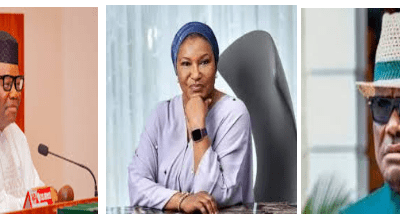Global Issues
Is Pakistan’s Troubled Economy Beneficial for African Textiles?

The lack of infrastructure in Pakistan has become too much to deal with for a lot of foreign investment. Instability in the country creates an environment where not much goes according to plan. Foreign companies are finding continued problems in transportation, down-times and exporting goods.
Lack of energy in Pakistan leaves many areas in the country without power for up to 13 hours a day. There has been an increasing energy crisis in Pakistan building for some time now and experts are predicting a looming water crisis to hit sometime in 2015. Many companies are forced to pay additional “service fees” just to get power. Gas and oil is another commodity in which not everyone has access which creates transportation problems.
With a loss of power comes a loss of internet and communications. This creates an instability that companies cannot afford when they cannot even reach their manufacturing via email or phone.
Violent clashes and corruption are also a major concern for business and create delays. We have seen an increase in terrorist attacks and violent religious and political clashes and protests.
Textiles are a major export for Pakistan and many rely on the industry to make a living. Sadly, western textile companies are finding Pakistan a country that is too risky to do business with.
In 2014, Pakistan textile exports dropped 6.38% and although there are signs of improvement many are holding off purchases until they see the country become stable for business.
Walt Disney pulled $200 Million dollars worth of yearly textile production from Pakistan and put the country on a banned list of approved supplier countries. The company labeled Pakistan as a risk to their flow of business.
“After much thought and discussion, we felt this was the most responsible way to manage the challenges associated with our supply chain,” said Bob Chapek, president of Disney Consumer Products in a statement.
He added that the decision is based on a recent report from the World Bank, which assesses how countries are governed, using metrics like accountability, corruption and violence, among others.
Canadian menswear label and retailer Kanati Clothing Co. also recently announced major losses in Pakistan due to corruption, down-times and supply chain issues. “As an organization that serves clients globally, we just can’t afford the disruption and down time in Pakistan. Our clients depend on a fast and reliable service. We can no longer wait and hope for improvements in Pakistan” said company co-founder Liam Massaubi in a press release. He continued to say “We recognize when it is time to cut losses and move on. There are added benefits of a domestic manufacturing approach where we are able to control all of the variables, which we cannot do in Pakistan”
Kanati Co. followed Walt Disney in placing Pakistan on a banned list of approved countries it will accept as a supplier.
Pakistan is a country on the decline according to the World Bank’s “Ease of Doing Business” ranking system that places the country at only 128 of 189 countries.
Western business is now finding itself the potential target of terrorism in Pakistan as there have been threats made by terrorist organizations such as the Taliban and ISIS to target western companies doing business in the region. Law enforcement is Pakistan is considered largely ineffective and has limited control in many parts of the country further increasing risk to foreign investment as there is no real protection.
Africa’s textile industry has been growing and becoming more popular in recent years. As costs have increased in China, Vietnam and Pakistan, more companies are shifting their focus to Africa’s textile manufacturing.
Africa has a lot to offer the global textile marketplace. Close to 10% of the worlds cotton comes from Africa. However it is mostly exported to Asia. By 2040, Africa will have 1.2 billion people of working age which will be bigger than India, China and Pakistan.
Swedish label H&M built a factory in Ethiopia and the US company PVH which produces for labels like Calvin Klein and Tommy Hilfiger plan to produce in Kenya.
In Nigeria, the textile industry collapsed years ago and many factories are in the late stages of decay. There are however signs things are improving and the Nigerian textile market is gaining some traction.
The managing director of the Nigerian Export Council, Mr. Olusegun Awolowo, recently urged Nigerian textile manufacturers to tap into the $850bn global market.
Awolowo, who was represented by the Acting Zonal Controller, NEPC Lagos, Mrs. Evelyn Obidike, said at a stakeholders’ forum of garments textile and apparel producers that of recent, the present administration had launched the Nigeria cotton, textiles and garment policy to boost the sector.
According to him, future global market for textiles and apparel is expected to expand drastically.
“It is going to be a challenging market, full of risks and unbelievable opportunities. Therefore it is important for the stakeholders to take cognizance of skills, competences and key trends to avoid pitfalls,” he said.
With Pakistan’s economy pushing companies away and Africa’s industry coming back with arms wide open; we are sure to see a further increase in African production. A willing labor force, stability and good price points are available in Africa’s growing marketplace.










